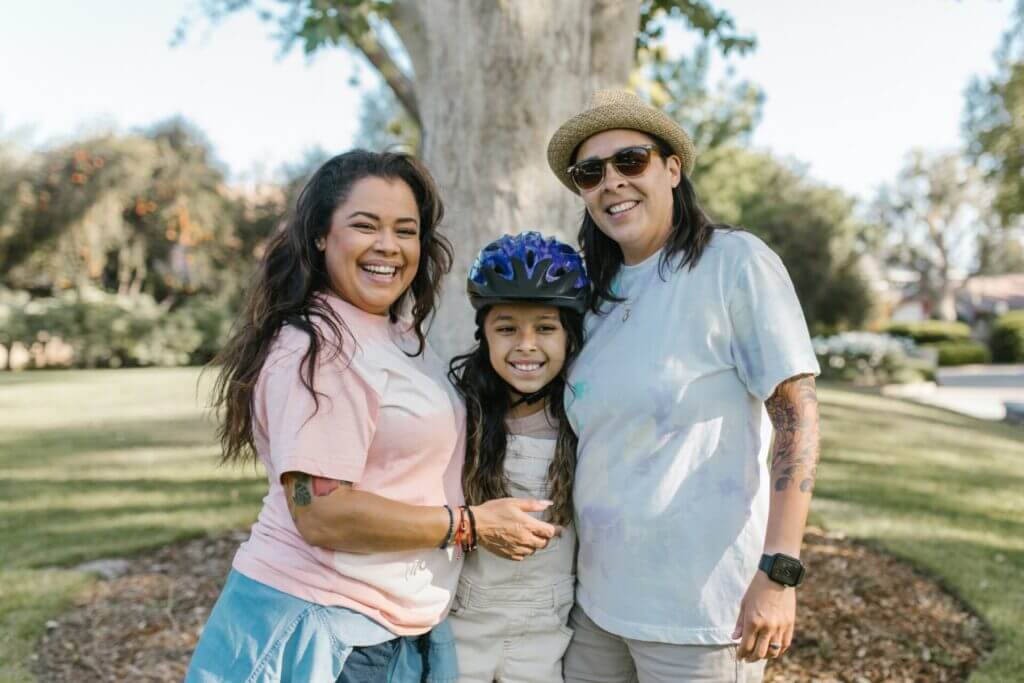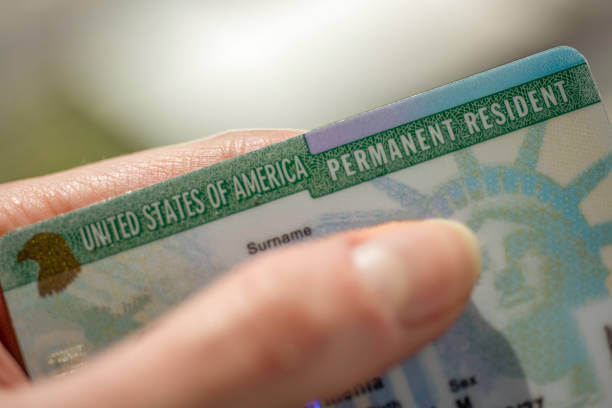Any U.S. citizen and/or permanent resident may request that his or her child live with him or her in the United States through the family reunification program. This immigration benefit does not treat all family ties equally, but prioritizes immediate family members (spouse, children and parents) over other family ties.
On the other hand, the process takes into account other factors to determine the suitability of applicants, such as the age and marital status of the children. In this regard, we know that unmarried children under the age of 21 have priority in a family reunification petition, but what about the petition from citizen parent to married child and the petition from resident parents to adult children?
Today our experienced attorneys at Jaskot Law will explain how to petition for a married and/or adult child who is a U.S. citizen or permanent resident.
Table of Contents
What family members can a U.S. citizen and permanent resident petition for?
Any U.S. citizen may petition for his or her immediate family members to live and work in the United States through the family reunification program. Among the family members for whom you may petition are:
- Spouses.
- Unmarried children under 21 years of age.
- Parents (if the citizen is 21 years of age or older).

However, if the foreign relative does not fall into this group of immediate family members, then he or she may fall into one of the following preference categories:
- Unmarried children over 21 years of age.
- Married children of any age.
- Siblings (if the citizen is 21 years of age or older).
On the other hand, a lawful permanent resident may also file an alien relative petition for:
- Spouses and unmarried children under 21 years of age.
- Unmarried children over 21 years of age.

However, as we have seen in our note on the differences between a U.S. citizen and a U.S. differences between a U.S. citizen and a U.S. resident, permanent residents are considered “preference relatives”, which means that they do not have the same priority as immediate family members in the immigration process.
In other words, this means that a petition from resident parents to adult children could take longer to process than one from a citizen. Therefore, it may be better to resort to another immigration remedy to reunite you with your family more quickly. In this regard, it is important that you seek the assistance of an immigration attorney who can analyze your case and advise you on the best possible legal course of action.
At Jaskot Law Our immigration attorneys have the knowledge and experience necessary to help you navigate the legal processes of the many immigration remedies available in the United States. Contact us at +1 (410) 235-6868 or [email protected].
How to make a petition from citizen parent to married child?
So, we already know that by law it is possible to make both a petition from a citizen parent to a married child and a petition from a resident parent to an adult child.
Now, to apply for legal residency for a child you must register on the USCIS website and fill out the Form I-130 (Petition for Alien Relative). Generally, USCIS approves the petition of a citizen parent to a married child, provided that the married child meets all the requirements detailed below. Once the petition is approved, your child may apply to become a permanent resident and apply for a Green Card through the Form I-485 (Application to Register Permanent Residence or Adjust Status).

It is important that you keep this in mind, since just making a petition from a citizen parent to a married child does not guarantee that the child will automatically receive residency, but there are other factors to consider such as the existence of causes of inadmissibility in the country.
Therefore, it is important that you seek the assistance of an immigration attorney who can analyze your case and advise you on the best possible legal course of action. At Jaskot Law we can help you, contact one of our attorneys today by calling +1 (410) 235-6868 or through [email protected].
Requirements to do a petition from citizen parent to married child
Both a petition from a citizen parent to a married child and a petition from a resident parent to a child of legal age must meet certain requirements. Fortunately, these are the same for both petition classes, so by following these steps you will be able to apply for residency for your child, whether you are a citizen or a permanent resident.
Completing the Alien Relative Petition
As mentioned above, to file a petition from citizen parent to married child you must complete and submit Form I-130. Remember to sign the form and attach the appropriate filing fee.
Gather evidence that you are a U.S. citizen
Send a copy of one of these documents proving that you are a U.S. citizen:
– Certificate of birth in the United States.
– U.S. passport.
– Consular report of birth abroad.
– Certificate of naturalization.
– Certificate of citizenship.
Proof of name change
Since this is a petition from a citizen parent to a married child, your son or daughter may have taken his or her spouse’s last name or changed his or her name. If this is your case you must send a copy of one of the following documents:
– Marriage certificate.
– Divorce decree.
– Court ruling on name change.
– Adoption decree or other proof if your name or your child’s name has changed.
Check the family relationship
As we said, in order to file a petition from citizen parent to married child, you will need to submit documentation proving your relationship with your child. However, please note that the documentation requirements for proving the family relationship vary depending on the type of family relationship.
As you may have noticed, the requirements are somewhat extensive and the process of gathering the necessary documentation can be long and difficult. Therefore, it is always advisable that you seek the advice of an experienced immigration attorney who can help you in your case.
At Jaskot Law we can help you with the family reunification process and the petition from citizen parent to married child. Contact us at +1 (410) 235-6868 or [email protected].
How long does a petition from citizen parent to married child take?
As we have seen, a petition from a citizen parent to a married child is covered by the family reunification program. However, USCIS does not consider a married child as an immediate relative, so the delay time for this petition from citizen parent to married child will depend on the dates in the visa bulletin each month.

Although the delay time may be long, remember that this can be a difficult process, so it is important not to despair and to seek the help of a professional attorney who can choose the best course of legal action for your case.
At Jaskot Law Our immigration attorneys have the knowledge and experience necessary to help you navigate the legal processes of the many immigration remedies available in the United States. Contact us at +1 (410) 235-6868 or [email protected].
Conclusion
In summary, a citizen parent to married child petition or a resident parent to adult child petition is possible under the U.S. family reunification program.
However, while both the requirements and the process are the same for both types of requests, the processing and approval times change. This is because USCIS takes into account different factors and prioritizes immediate family members, on the one hand, and permanent residents have a lower preference category than citizens, which can result in longer processing times, on the other.
On the other hand, it is also important to keep in mind that filing the petition does not automatically guarantee your child’s residency, as there are other factors to consider, such as pre-existing grounds of inadmissibility.
With all this in mind, it is advisable to seek the help of an immigration attorney to analyze the case and receive appropriate legal advice.
At Jaskot Law our immigration attorneys have the necessary knowledge and experience in family immigration to help you reunite with your loved ones. Contact us at +1 (410) 235-6868 or [email protected].
Sources
USCIS – I-130, Petition for Alien Relative.
USCIS – I-485, Application to Register Permanent Residence or Adjust Status.
USCIS – Visa Bulletin.
usa.gov – Applying for permanent residency or “Green Card” for a family member.
Frequently Asked Questions
Who may be petitioned by a U.S. citizen or permanent resident?
A U.S. citizen may petition for immediate family members, such as spouses, unmarried children under the age of 21, and parents if the citizen is 21 years of age or older, to live and work in the United States. In addition, both a citizen and a permanent resident may petition for other family members who are not considered immediate relatives, such as unmarried children over 21 years of age, married children of any age, and siblings, if the citizen is 21 years of age or older.
How is a petition from a citizen parent to a married child made?
To petition for a citizen parent to married child, you must complete Form I-130 (Petition for Alien Relative) on the USCIS website. It is necessary to present evidence that you are a U.S. citizen, documents showing name changes if applicable, and proof of the family relationship. Once the petition is approved, your child will be able to apply for permanent residence and a Green Card through Form I-485 (Application to Register Permanent Residence or Adjust Status).
What are the requirements for a citizen parent to married child petition?
The requirements for filing a citizen parent to married child petition are as follows: completion of Form I-130, submission of evidence of U.S. citizenship, documentation regarding name changes if applicable, and proof of the family relationship. Documentation requirements may vary depending on the type of family relationship, so it is advisable to seek the advice of an immigration attorney to obtain accurate information about your case.
How long does a petition from a citizen parent to a married child take?
The delay time for a petition from citizen parent to married child may vary. USCIS does not consider a married child as an immediate relative, so the processing time will depend on the dates in the visa bulletin each month. It is important to keep in mind that this process can be long and difficult. It is recommended to seek the assistance of an immigration attorney for proper legal advice.
Where can I get help with the citizen parent to married child petition process?
At Jaskot Law we have experienced immigration attorneys who can assist you in the citizen parent to married child petition process. You can contact us at +1 (410) 235-6868 or [email protected] for legal advice and assistance in your family reunification case.
Juan Berkowsky is a professional writer specialized in communications for social networks and digital media. His mission is to empower people through knowledge and access to information. He work with honesty and dedication to assist all those seeking to navigate the sometimes tough U.S. immigration process.


